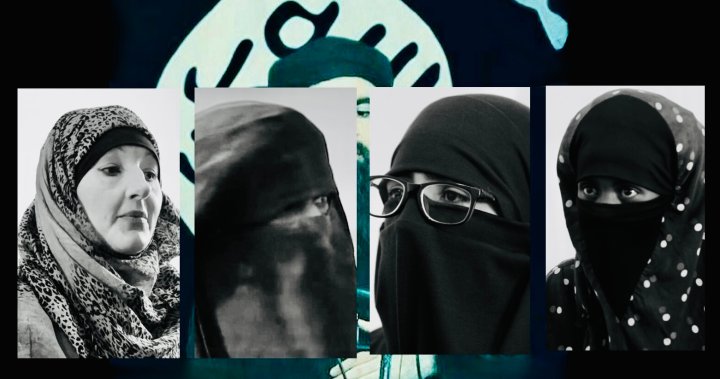The diehard supporters of ISIS found themselves in a dire situation in Baghuz, Syria in 2019. Among them was Kimberly Polman, a Canadian woman who had married into the terrorist group. After surrendering, she was taken to Roj Camp, a prison in Syria, by U.S.-backed Kurdish fighters. Polman knew that she might face trial upon her return to Canada and acknowledged that she was not above the law. However, four years have passed since her return to British Columbia’s Fraser Valley, and she has not been charged for her alleged involvement in ISIS. In fact, most Canadian women who have returned from Syria have not faced any charges.
Around 20% of the approximately 100 Canadians who went to join ISIS were women. Despite the brutal atrocities committed by ISIS in Syria and Iraq, and their call for attacks on Western countries, very few women are being held accountable in Canadian courts. Only one woman, Oumaima Chouay from Montreal, has been charged out of the nine women who returned with the help of the federal government. Meanwhile, four other women have been charged with terrorism under Canadian law, but none of their cases have resulted in convictions. In contrast, 63 men have been charged, with about half of them being convicted.
These statistics have puzzled national security researchers. While other countries like Germany, the United States, and the United Kingdom have prosecuted numerous women returning from overseas, Canada seems to be lagging behind. Evidence for charging these women may be harder to come by since they were not as visible on social media as their male counterparts. They operated more discreetly in the background. However, gender stereotypes that downplay women’s roles in global terrorism may also be a contributing factor. Women are often seen as less capable of engaging in terrorist activities and are more likely to be perceived as victims who were manipulated or naive. This reduction in their individual culpability is not applied to men, even of the same age.
The role of women within ISIS was significant. They were involved in radicalization, recruitment, financing, propaganda, violence, and even combat. They played a crucial role in ensuring the ideological continuity of the organization, as well as contributing to its genocide of Yazidis. If evidence of Canadian women’s involvement in these crimes is lacking, it raises questions about law enforcement priorities and whether women are seen as a significant threat. The low rate of prosecutions and arrests in Canada is not in line with global trends. This lack of action not only sends the wrong message but also hinders the proper tracking of terrorist activity and could lead to insufficient responses to the threat. Recognizing the roles women play in active terrorism is essential for effective counter-terrorism efforts.
Denial of responsibility! Vigour Times is an automatic aggregator of Global media. In each content, the hyperlink to the primary source is specified. All trademarks belong to their rightful owners, and all materials to their authors. For any complaint, please reach us at – [email protected]. We will take necessary action within 24 hours.


